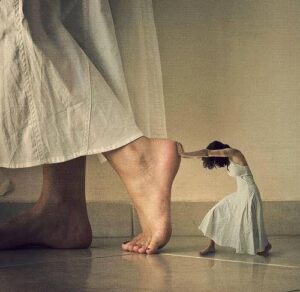“Grief turns out to be a place none of us know until we reach it. We anticipate (we know) that someone close to us could die, but we do not look beyond the few days or weeks that immediately follow such an imagined death. We misconstrue the nature of even those few days or weeks. We might expect if the death is sudden to feel shock. We do not expect the shock to be obliterative, dislocating to both body and mind. We might expect that we will be prostrate, inconsolable, crazy with loss. We do not expect to be literally crazy, cool customers who believe that their husband is about to return and need his shoes. In the version of grief we imagine, the model will be ‘healing.’ A certain forward movement will prevail. The worst days will be the earliest days. We imagine that the moment to most severely test us will be the funeral, after which this hypothetical healing will take place. When we anticipate the funeral we wonder about failing to ‘get through it,’ rise to the occasion, exhibit the ‘strength’ that invariably gets mentioned as the correct response to death. We anticipate needing to steel ourselves for the moment: will I be able to greet people, will I be able to leave the scene, will I be able even to get dressed that day? We have no way of knowing that this will not be the issue. We have no way of knowing that the funeral itself will be anodyne, a kind of narcotic regression in which we are wrapped in the care of others and the gravity and meaning of the occasion. Nor can we know ahead of the fact (and here lies the heart of the difference between grief as we imagine it and grief as it is) the unending absence that follows, the void, the very opposite of meaning, the relentless succession of moments during which we will confront the experience of meaninglessness itself.” ― Joan Didion, The Year of Magical Thinking
I never anticipated the shock and awe of grief as it is— the sound and texture of deafening, paralyzing, unending absence. Of multiple absences. The excruciatingly silent wake. I never once imagined that profound and consecutive losses in such proximity would even be possible. Because how cruel would that be? You’re always told that the worst thing will most likely never happen and when the worst thing does happen— you’ve walked into an altogether different room.
Last night I saw one of my heroes, Anne Lamott, and as a call to compassion, she mentioned that “we’re all in the same boat.” I wasn’t sure about that, at least not exactly. I remembered an anonymous quote I’d recently come across: “We are not all in the same boat. We are in the same storm. Some have yachts, some have canoes, and some are drowning. Just be kind and help whoever you can.” I wasn’t sure about that, either—I’m not sure we’re all in the same storm.
The point of both of these quotes is clear, though: Be empathetic, less judgy, everyone is going through something, so be nice, will ya. We don’t know what we don’t know until we know.
Turns out there are different flavors of grief. I had tasted some of them early on. But after six whole decades on planet Earth, I got schooled.
I have been deeply humbled by my previous ignorance—by a lot of things.
Why am I telling you this? Openly writing such private thoughts? Because this is my way through. I’m pushing the heel of my foot.
In The Year of Magical Thinking, Joan Didion wrote:
“Until now I had been able only to grieve, not mourn. Grief happened. Mourning, the act of dealing with grief, required attention.”
This is that.
This is me putting my back into it.
